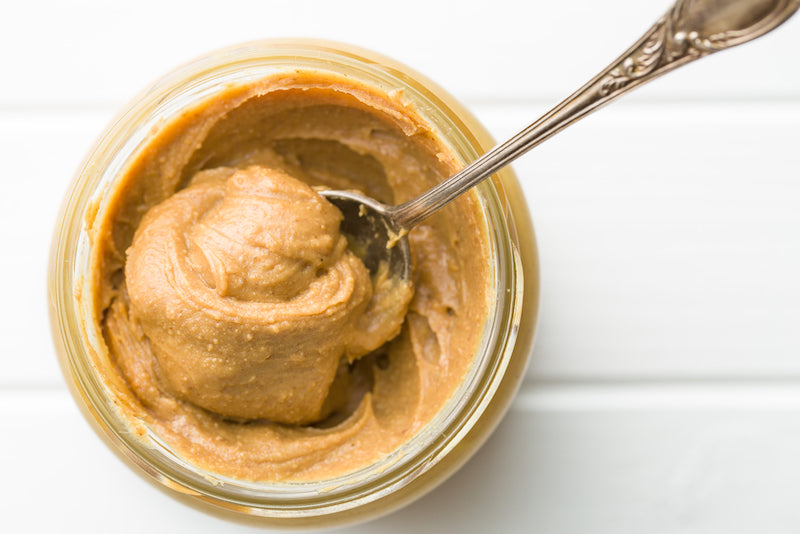If you want to put on muscle, getting your nutrition right is crucial. You want to pack your diet full of high-protein foods that aid muscle growth and help you put on healthy mass.
A lot of people swear by protein as one of the best foods for muscle growth.
But is this really true? And if it is beneficial for people who want to build muscle, how does this work?
These are all questions we’re going to answer in this article.
The Role of Protein in Muscle Growth
First of all, let’s touch on why protein is so important for building muscle.
Muscle growth happens when muscle fibers are broken down and rebuilt. The breakdown part happens in training, where you exercise (usually by lifting weights) in a way that causes tiny tears in the muscle fibers and stimulates a process called hypertrophy.
After this, as you recover, your body repairs these damaged muscle fibers, and does so to be bigger and stronger than they were before.
Proteins are the building blocks the body needs to repair and rebuild the muscles. You need ample protein intake to support this process, and provide the body with the fuel it needs to add muscle mass.

How Much Protein Do I Need Each Day
The recommended daily protein intake for an average adult is 0.8 grams of protein per kg of body weight. However, this is just to prevent deficiency and support basic bodily functions.
If you’re active, and especially if you want to build muscle, you need a higher protein intake. In this case, you should aim for around 1.5-1.7 grams of protein per kg of body weight.
Does Peanut Butter Have Protein
Peanut butter is a decent source of protein, which is part of the reason why it has a reputation as being beneficial for people who are trying to build muscle.
One tablespoon of peanut butter has approximately 3.6 grams of protein, according to Food Data Central. So a common serving can contain around 8-10 grams of protein.
This won’t get you to your protein intake goals by itself, but it certainly helps, especially as protein is versatile and easy to add to a variety of meals/snacks.
Peanut butter’s nutritional profile contains a number of other things outside of protein. It’s moderately high in carbs, and quite high in fat, particularly healthy monounsaturated fats.
Overall, this can be a good thing - but it does mean that peanut butter is not exactly a protein dense food, which may make it hard to fit in if you have strict macro targets.

What is Powdered Peanut Butter?
Powdered peanut butter is a powdered variation of peanut butter, made by roasting, pressing and grinding down peanuts to make a fine powder, rather than the creamy spread form it usually comes in.
The result is a more protein-dense form of peanut butter. The process with which it is made removes most of the oils in peanut butter that contribute to most of its fat and calories.
Is PB Protein Better Than Regular Peanut Butter?
Your choice between regular peanut butter and powdered peanut butter depends on your preferences and goals.
Powdered peanut butter has some significant benefits. It’s much lower in calories and fat, while maintaining roughly the same protein content.
For example, our organic peanut butter powder contains just 50 calories and 1.5 grams of fat in a 2 tablespoon serving, compared to 190 calories and 16 grams of fat from regular peanut butter.
This makes it easier to add to your diet to top up protein without going over your fat/calorie limits.
It’s also extremely versatile, easy to add to smoothies and recipes, as it mixes more easily than thick peanut butter spreads.

Resistance Training for Muscle Growth
Getting your protein intake right is essential for building muscle, and peanut butter (powdered or regular) can help with that.
But it won’t build muscle on its own. You also need the right training. Resistance training (such as lifting weights) is the other half of the equation.
If you don’t put your muscles under resistance, you won’t stimulate the muscle building process where protein is put to use. So ensure you meet both parts of the equation, with the right training AND the right nutrition.
PB Protein vs Whey: Which is Better for Muscle?

Whey protein contains a lot more protein than peanut butter - approximately 50 grams of protein more per 100g serving. So, side by side, whey protein is better for building muscle.
Yet there are some reasons to take a peanut butter protein powder over whey. Peanut butter protein is totally vegan, which is a plus if you’re lactose intolerant or just want to avoid animal products. It also contains more carbohydrates, which may be beneficial if you need energy to support a high training volume.
There are a number of other vitamins and minerals you find in peanut butter (including the powdered form) that whey doesn’t have. And then it’s also just an interesting alternative that may add more variety to your protein intake.
In the end, whether you take a whey protein or peanut butter protein powder, both go a long way towards ensuring you get the protein intake you need to meet your fitness goals.






